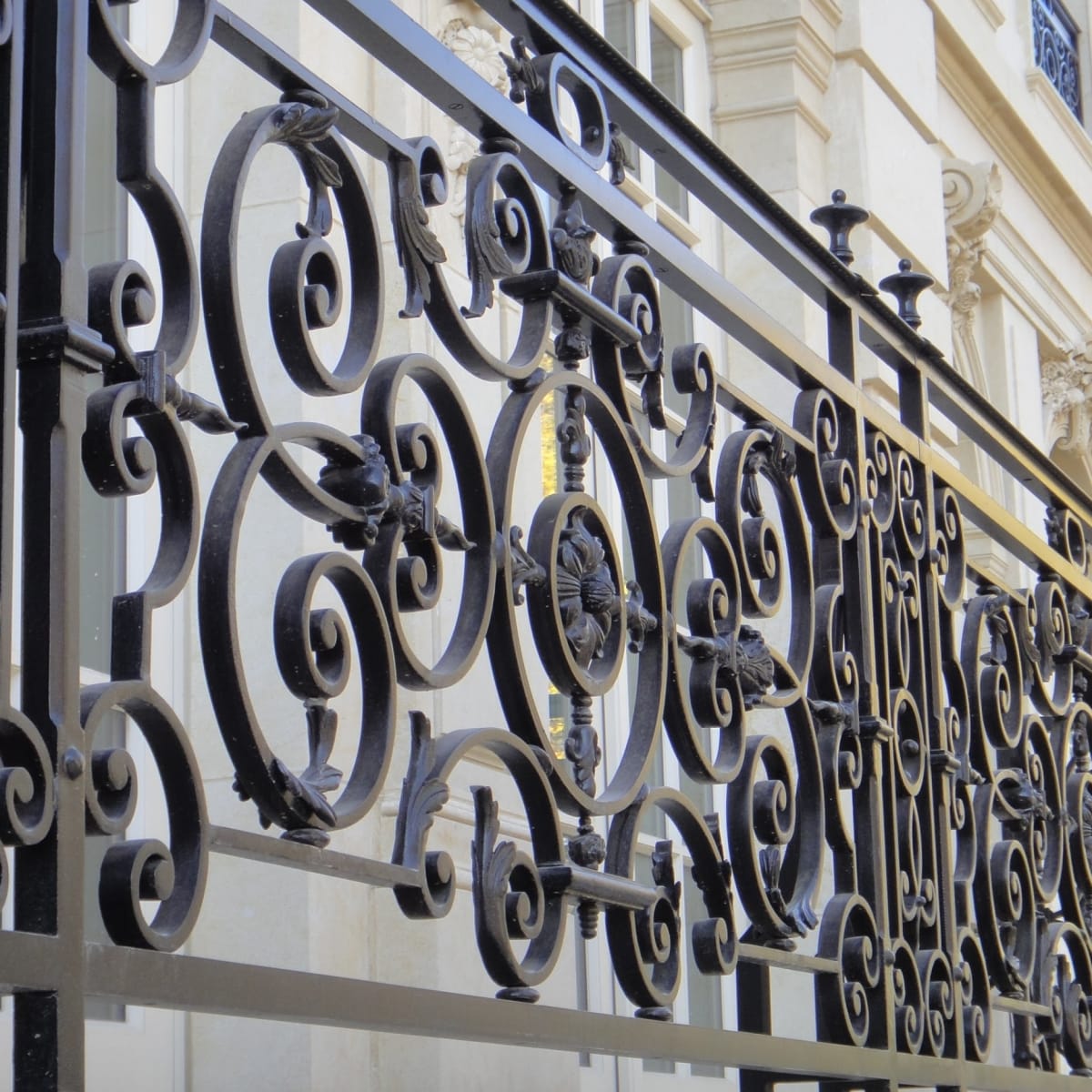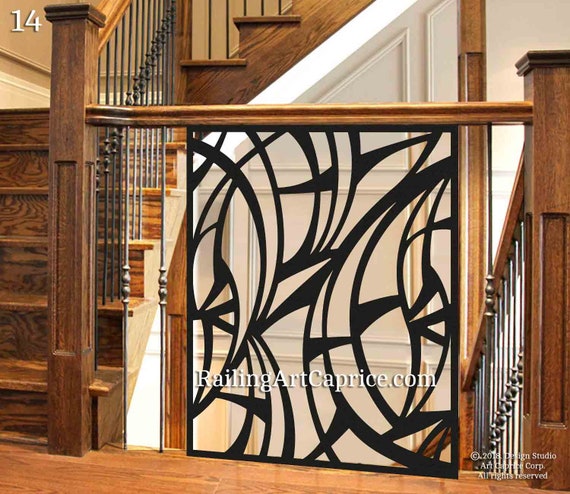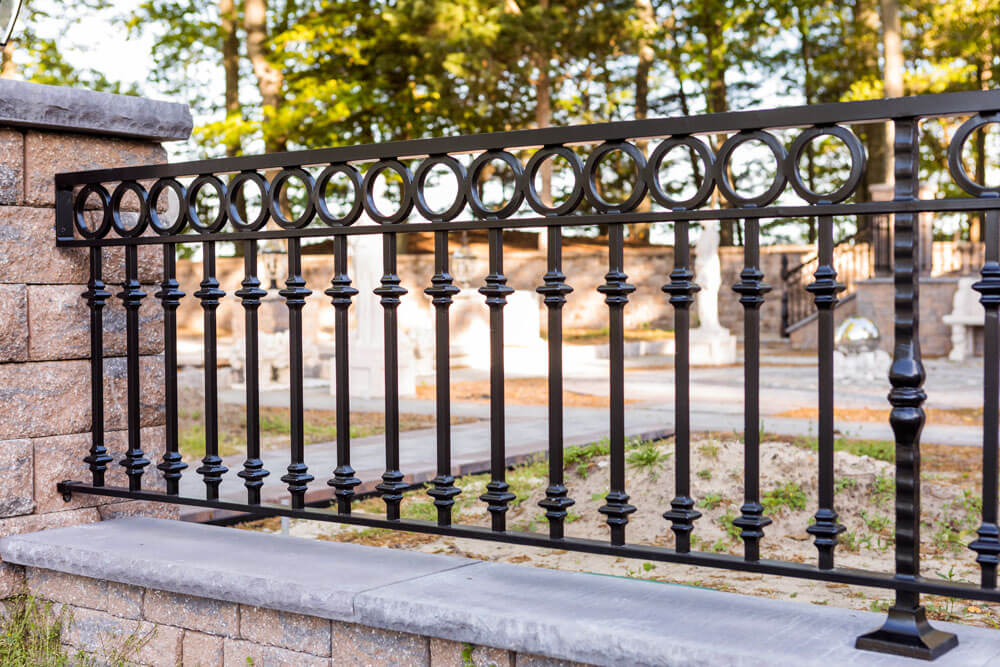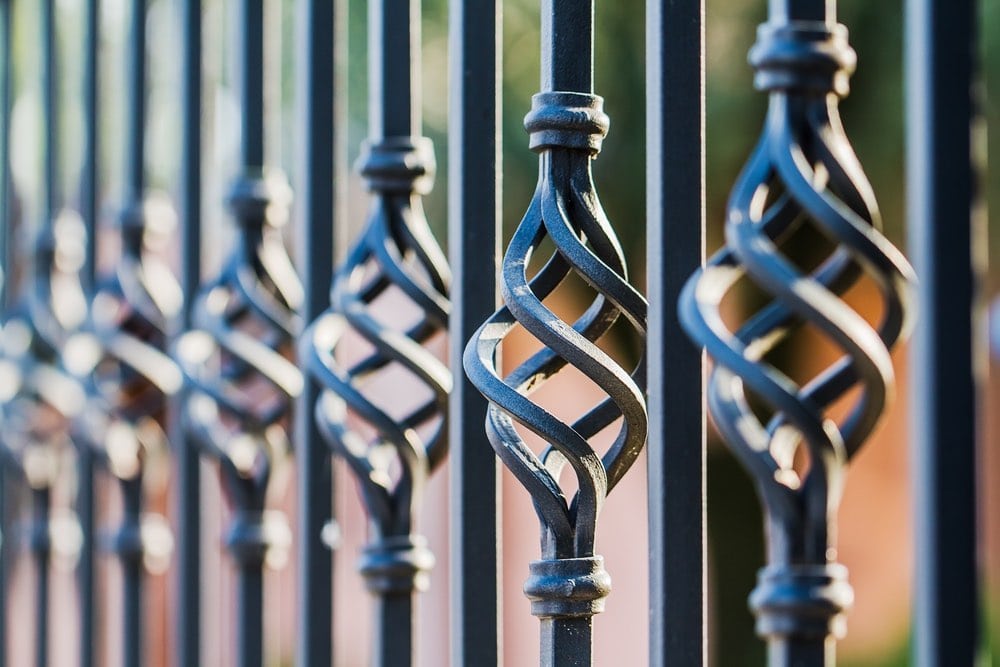Introduction
Decorative metal railings can elevate both the aesthetic appeal and safety of your property. Over the years, I’ve had the pleasure of working with a variety of materials and designs, helping homeowners and businesses alike find the perfect railings to fit their style. In this guide, we will explore the myriad options available, their benefits, and essential tips for choosing and installing decorative metal railings.
What Are Decorative Metal Railings?
Decorative metal railings are architectural elements often found on stairs, balconies, decks, and porches. Made from materials like wrought iron, aluminum, and steel, these railings serve the dual purpose of providing safety and enhancing the visual appeal of a space.
Types of Decorative Metal Railings
1. Wrought Iron Railings
Wrought iron railings are known for their strength and intricate designs. They can be molded into unique shapes, allowing for a custom look.
Pros and Cons of Wrought Iron Railings
| Pros | Cons |
|---|---|
| Highly durable | Requires regular maintenance to prevent rust |
| Customizable designs | Can be more expensive than other materials |
2. Aluminum Railings
Aluminum railings are lightweight and resistant to corrosion, making them ideal for outdoor use. They provide a modern look and are available in various colors and styles.
Pros and Cons of Aluminum Railings
| Pros | Cons |
|---|---|
| Low maintenance | Less sturdy compared to wrought iron |
| Variety of styles | May not provide the same aesthetic appeal as wrought iron |
3. Stainless Steel Railings
Stainless steel railings offer a sleek, contemporary look and are highly resistant to weathering. They are perfect for modern homes and commercial spaces.
Pros and Cons of Stainless Steel Railings
| Pros | Cons |
|---|---|
| Highly durable and corrosion-resistant | Can be expensive to install |
| Easy to maintain | Fingerprints may be visible on the surface |

Benefits of Decorative Metal Railings
1. Enhanced Safety
One of the primary functions of any railing is to provide safety. Decorative metal railings meet building codes and regulations, ensuring a secure environment, especially in homes with children and pets.
2. Increased Property Value
Investing in quality decorative metal railings can significantly enhance your property’s curb appeal, potentially increasing its value. A stylish railing can be a selling point when listing your home.

3. Low Maintenance Requirements
Compared to wooden railings, decorative metal railings require less maintenance. For instance, aluminum and stainless steel are resistant to weather and pests, needing only occasional cleaning.
Choosing the Right Decorative Metal Railings for Your Space
1. Consider Your Style
Think about the overall design of your home or business. Modern spaces might benefit from sleek stainless steel railings, while more traditional homes could lean toward ornate wrought iron designs.

2. Assess Your Budget
Different materials come at different price points. Determine your budget before exploring options to avoid overspending. While wrought iron might be more expensive initially, its longevity can make it a worthwhile investment.
3. Focus on Functionality
Consider how the railings will be used. Will they see heavy traffic, or are they primarily decorative? Your choice might change based on this consideration.

4. Local Climate
In areas prone to severe weather, it might be wise to choose materials that withstand corrosion and other environmental stressors. Stainless steel railings, for example, handle harsh conditions well.
Installation Tips for Decorative Metal Railings
Installing decorative metal railings can be a DIY project or require professional assistance, depending on your skills and the complexity of the installation.
1. Gather Necessary Tools
Ensure you have the right tools before starting the installation. Common tools include a drill, level, measuring tape, and safety gear.

2. Measure and Mark
Accurate measurements are crucial. Use a level to mark where the railings will be installed to ensure evenness.
3. Follow Manufacturer Instructions
Each type of railing has specific installation guidelines. Always adhere to these instructions for the best results.

4. Consider Hiring Professionals
If you’re unsure about the installation process, it might be best to hire professionals. They can ensure the railings are installed securely and comply with local codes.
Comparing Decorative Metal Railings: A Side-by-Side Look
| Feature | Wrought Iron | Aluminum | Stainless Steel |
|---|---|---|---|
| Durability | High | Medium | High |
| Maintenance | Medium | Low | Low |
| Cost | High | Medium | High |
| Customizability | High | Medium | Medium |
| Best For | Traditional styles | Modern styles | Contemporary styles |

Frequently Asked Questions (FAQs)
1. How much do decorative metal railings typically cost?
The cost of decorative metal railings varies widely based on the material, style, and customization. Generally, you might expect to pay between $50 to $150 per linear foot.
2. Do I need a permit for installing metal railings?
It depends on your local building codes. Always check with your local authority to ensure compliance before installation.
3. Can decorative metal railings be painted?
Yes! Most metal railings can be painted; however, it’s essential to use paint specifically designed for metal surfaces for the best results and durability.
4. Are decorative metal railings environmentally friendly?
Yes, particularly when made from recycled materials. Aluminum and steel can often be sourced responsibly, reducing environmental impact.
5. How do I maintain my decorative metal railings?
Maintenance usually involves occasional cleaning and inspection for rust or wear. Wrought iron may require a rust-inhibiting paint every few years, while aluminum and stainless steel generally need less attention.
Conclusion
Decorative metal railings are a fantastic choice for anyone looking to enhance both the safety and beauty of their space. With a variety of materials and styles available, it’s easy to find the perfect railing to match your home or business. Consider your options carefully, and remember that investing in quality railings not only boosts aesthetics but also adds value to your property. I hope this guide has provided you with valuable insights and has inspired you to enhance your space with decorative metal railings!